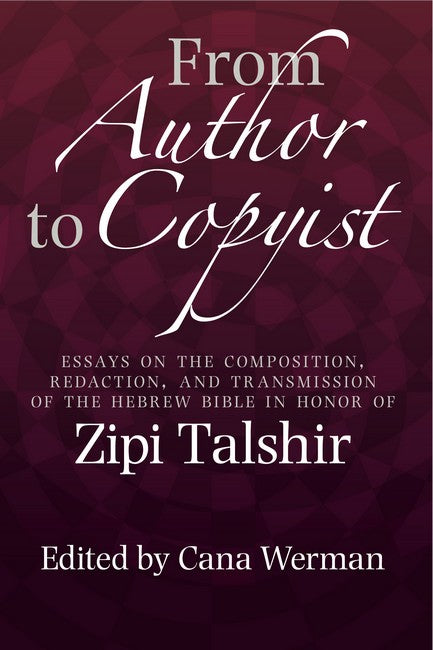Septuagint and Samareitikon—Jan Joosten
The Text-Critical Contribution of the Antiochean Greek and Old Latin Texts—Case Study: 2 Kings 8:10–11—Julio Trebolle Barrera
The Genealogical Lists in Genesis 5 and 11 in Three Different Versions—Emanuel Tov
An Identical Scribal Mistake in 1 Kings 9 and 2 Chronicles 7: Consequences for the Textual History of Kings and Chronicles—Adrian Schenker
Text and Context: The Textual Elimination of the Names of Gods and Its Literary, Administrative, and Legal Context—Alexander Rofé
Once Again: Hosea and the Pentateuchal Traditions—Erhard Blum
Ezekiel, a Singer of Erotic Songs? Some Text-Critical Remarks on Ezekiel 33:31–32—Johan Lust
If You Go Down to the Woods Today: B(e)aring the Text of Proverbs MT and LXX—Tova Forti
Numbers 36:13: The Transition between Numbers and Deuteronomy and the Redaction of the Pentateuch—Itamar Kislev
Bel and the Dragon: The Relationship between Theodotion and the Old Greek—Dalia Amara
The Masoretic Rewriting of Daniel 4–6: The Septuagint Version as Witness—Olivier Munnich
Speaking about God: Person Deixis in Malachi (Text and Versions)—Jonathan Ben-Dov and Romina Vergari
Echoes of Solomon and Nehemiah: Hezekiah’s Cultic Reforms in the Book of Chronicles—David A. Glatt-Gilad
Textual History through the Prism of Historical Linguistics: The Case of Biblical Hebrew z-m-r—Noam Mizrahi
Whodunit? Implicit Subject, Discourse Structure, and Pragmatics in the Hebrew and Greek Bibles—Frank H. Polak
Weighing in the Scales: How an Egyptian Concept Made Its Way into Biblical and Postbiblical Literature—Nili Shupak
The Rabbinic Sages’ Allegation about LXX Genesis 1:1: Bickerman’s Cogent Explanation—Mayer I. Gruber
When Did the Books of Samuel Become Scripture?—Anneli Aejmelaeus
What Is a Biblical Book?—Ronald Hendel
Revelatory Experiences as the Beginning of Scripture: Paul’s Letters and the Prophets in the Hebrew Bible—Roland Deines
The Canonization of the Hebrew Bible in Light of Second Temple Literature—Cana Werman
Index of Authors
Index of Ancient Sources

